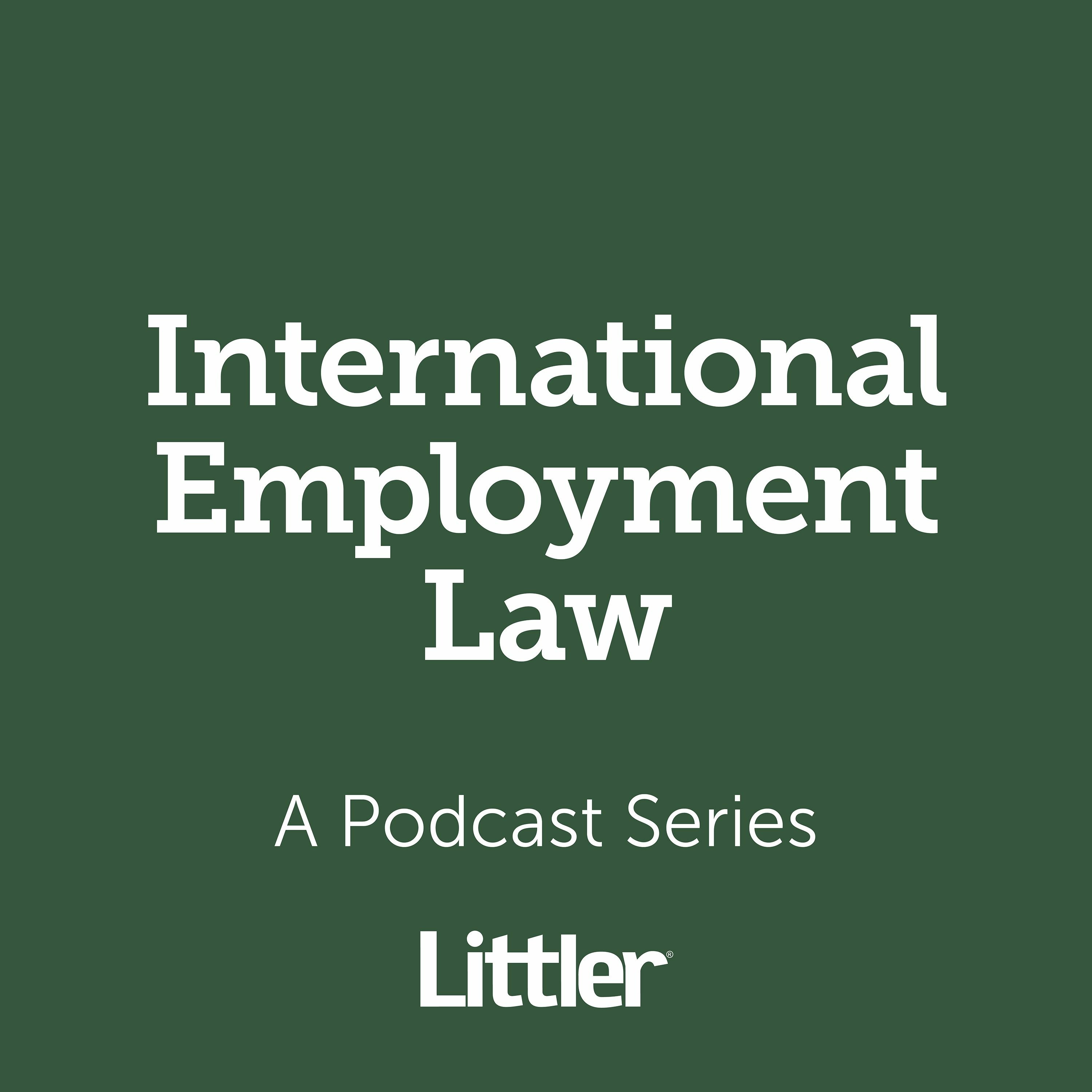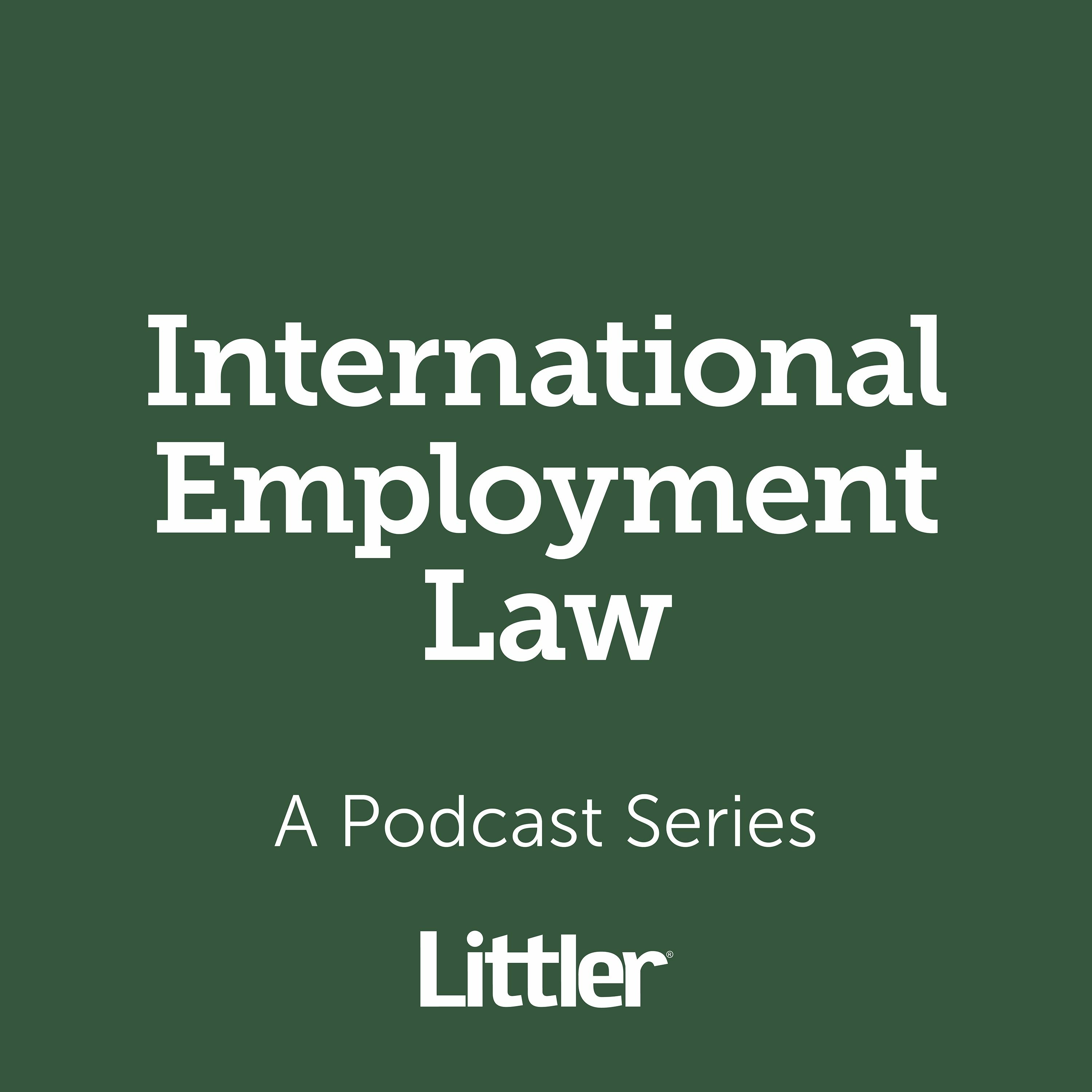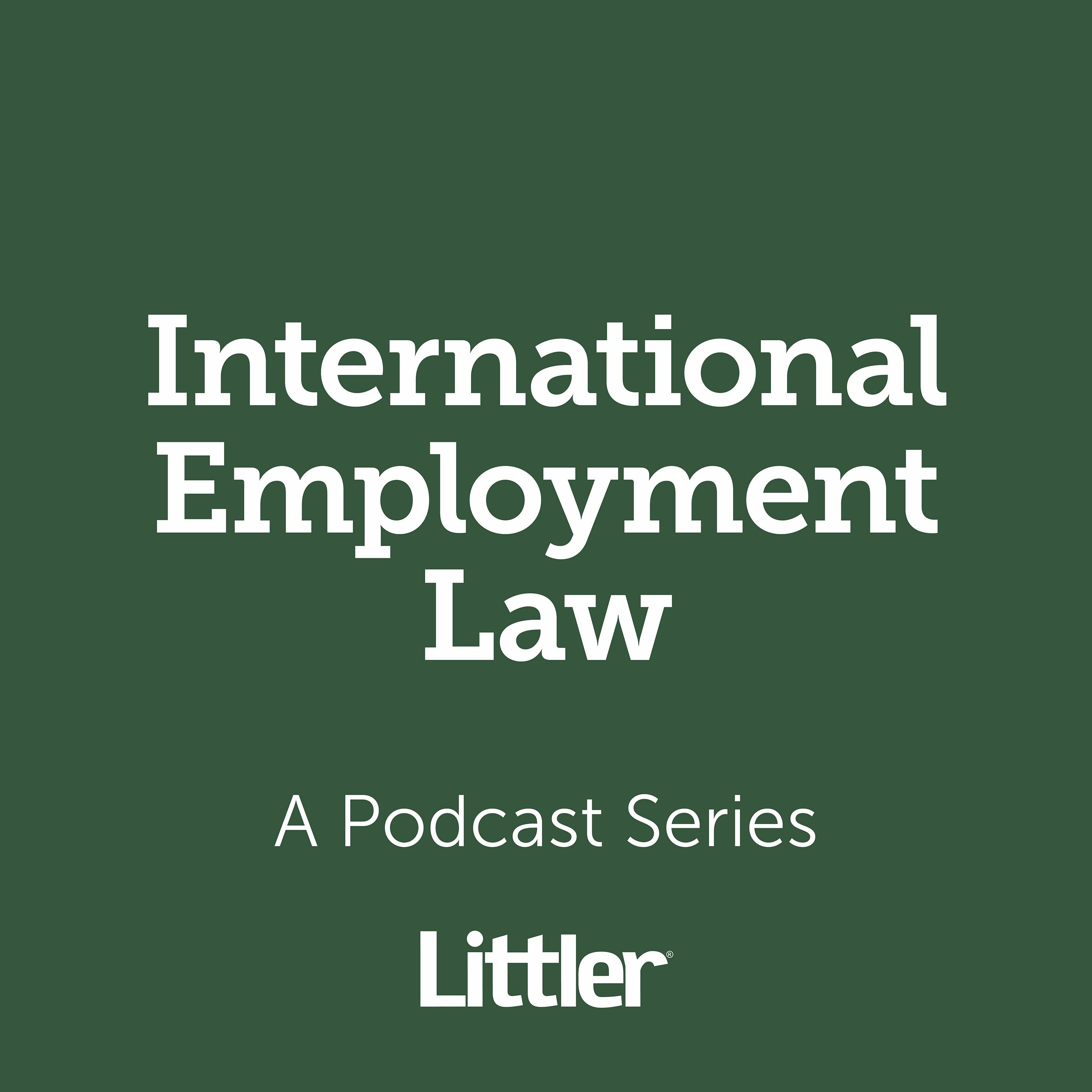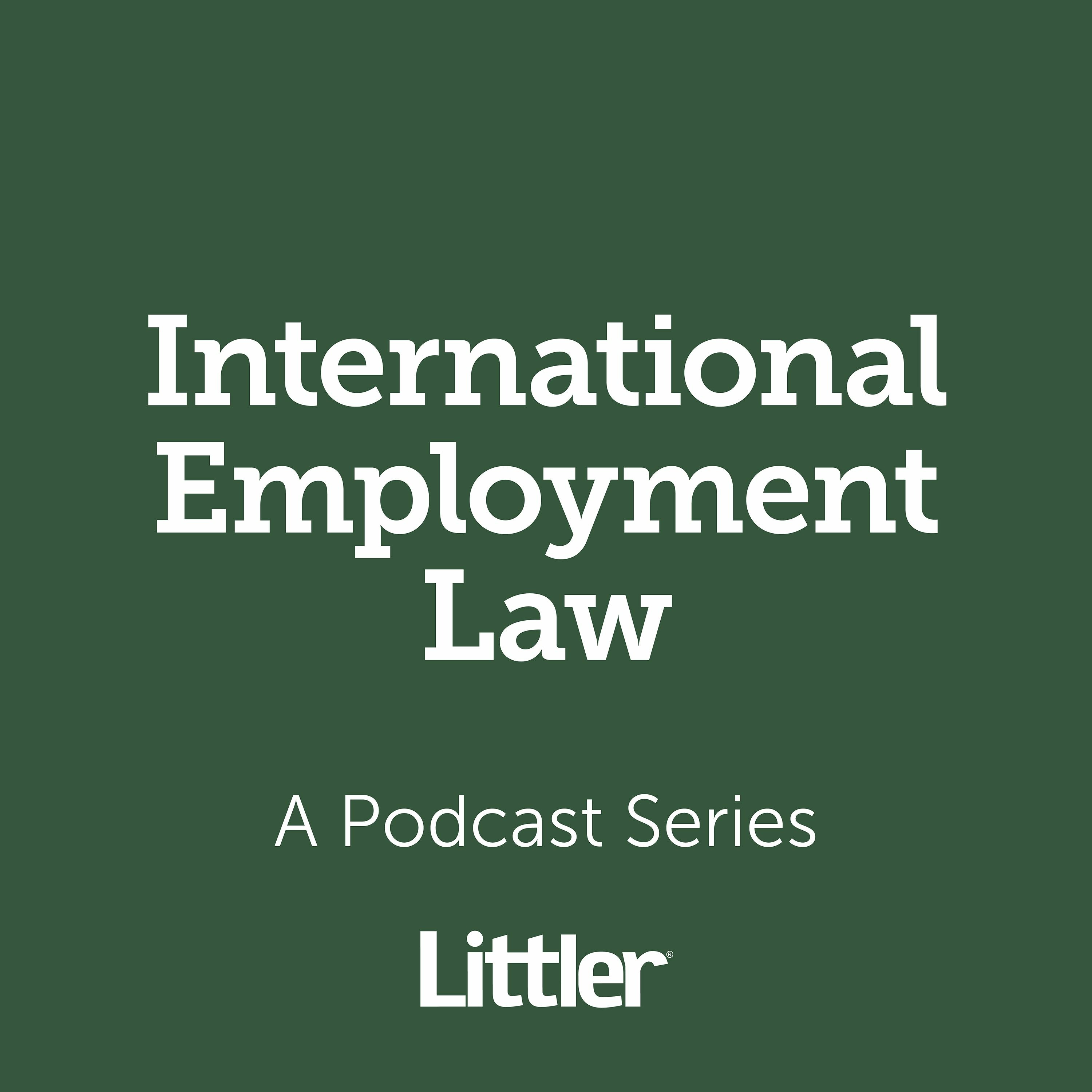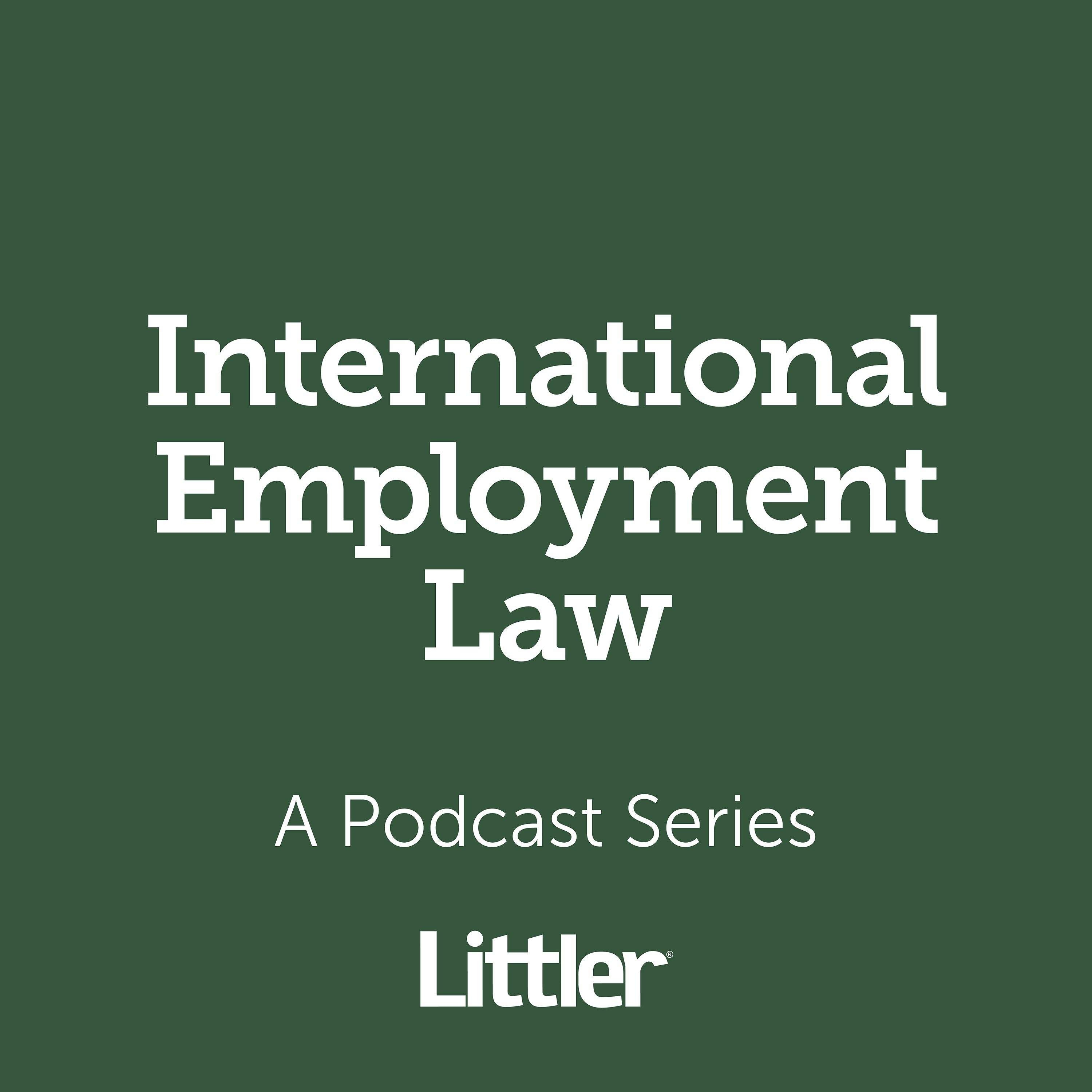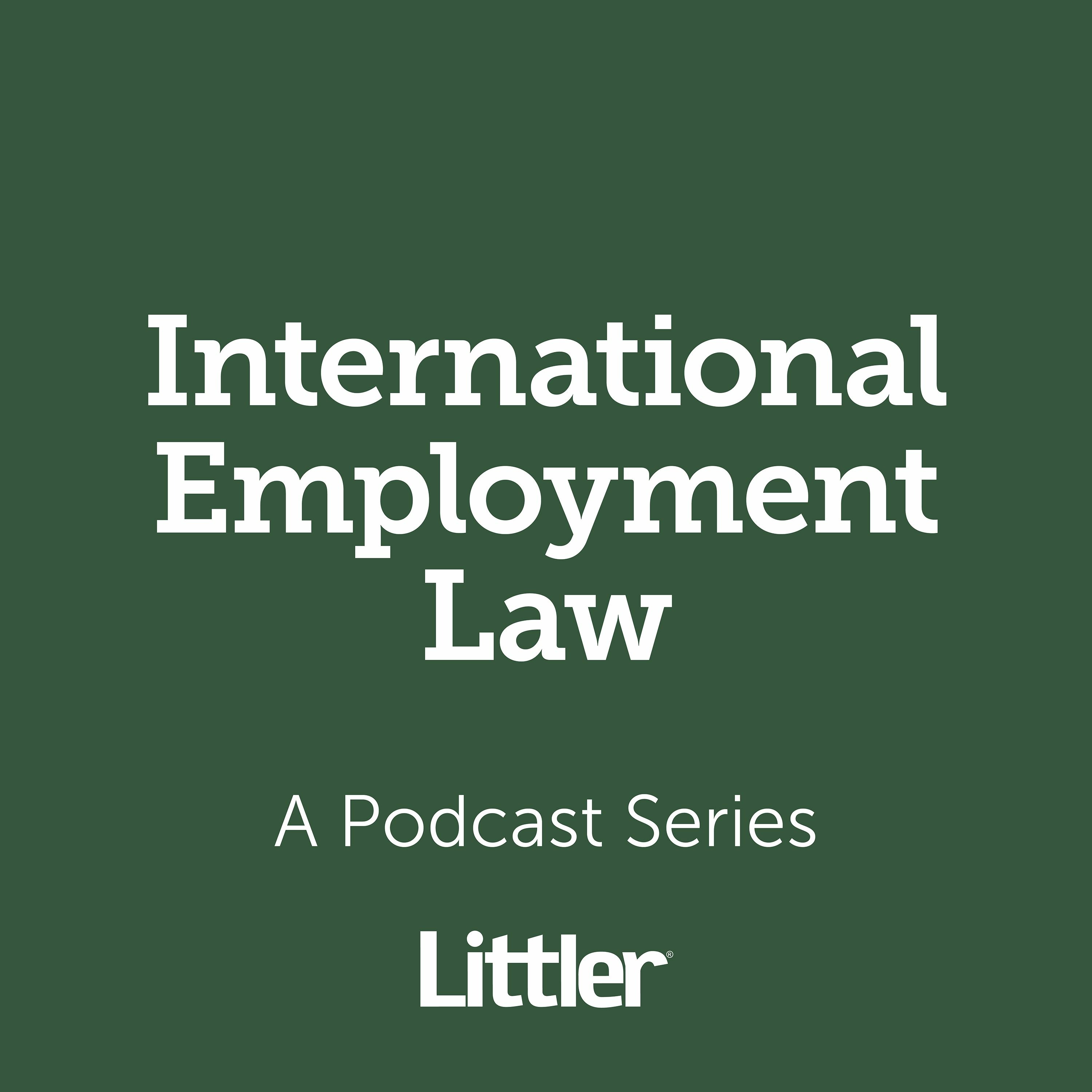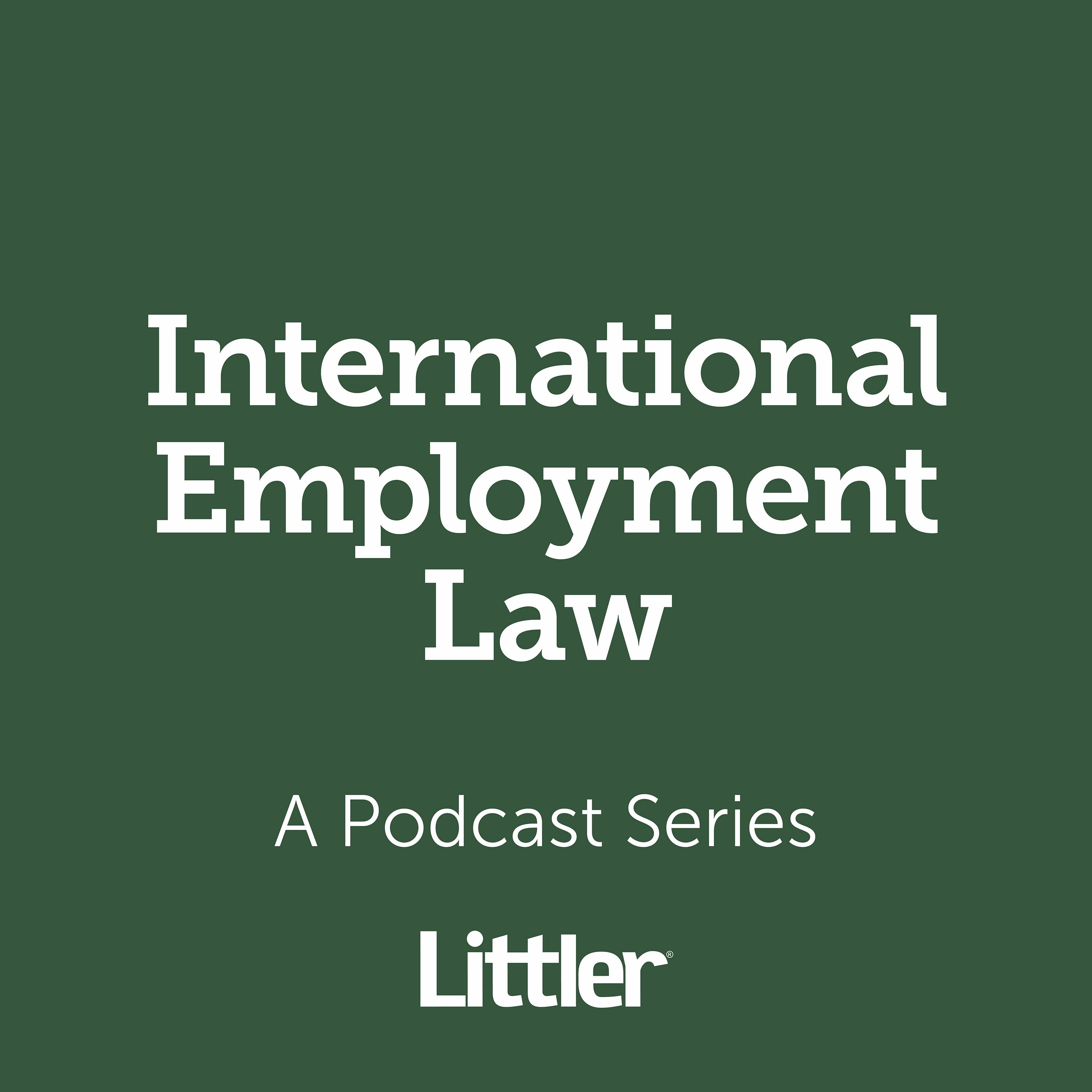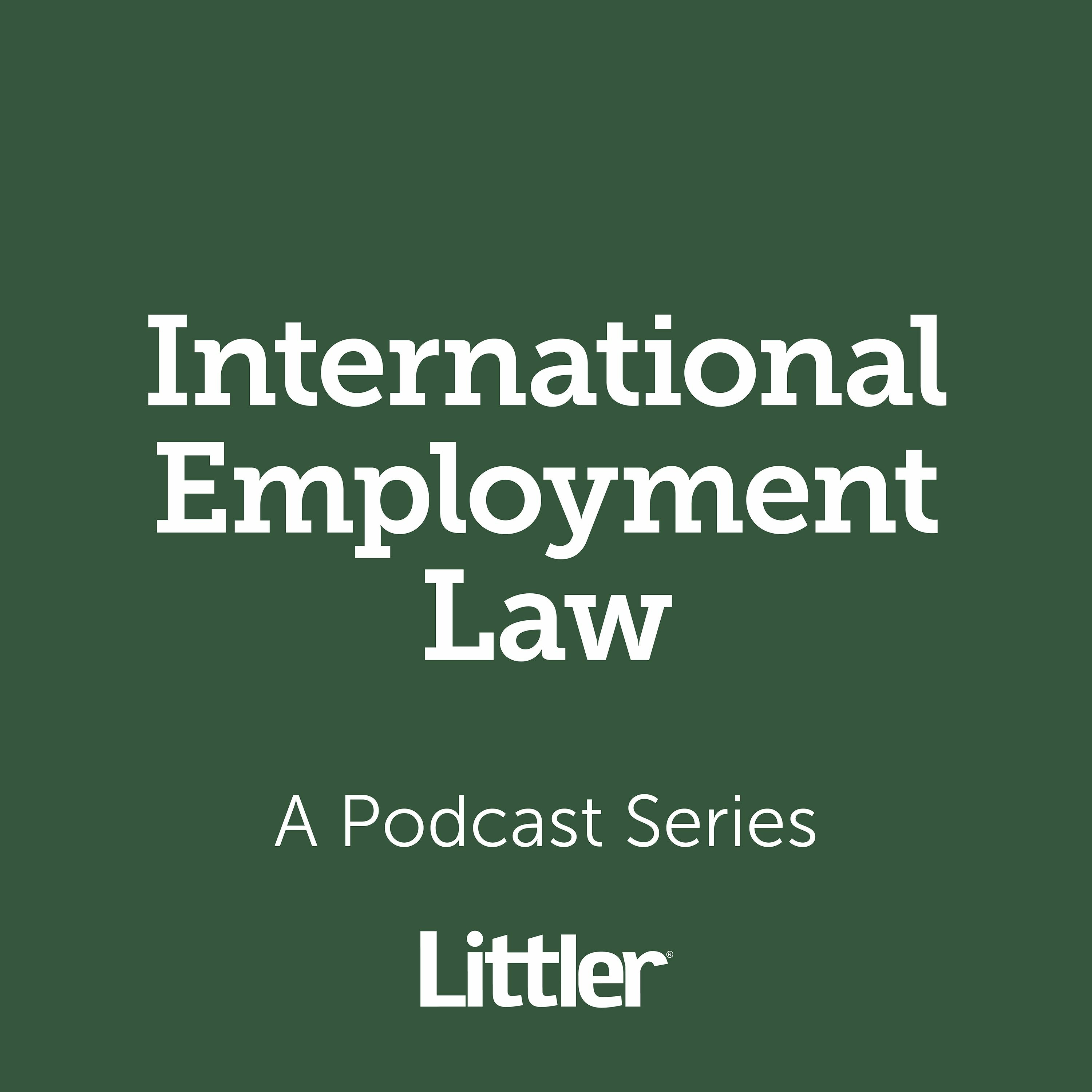Discover Littler International Employment Law Podcast
Littler International Employment Law Podcast

Littler International Employment Law Podcast
Author: Littler International Employment Law
Subscribed: 3Played: 1Subscribe
Share
© All rights reserved
Description
Conversations for the multinational employer on issues impacting their global business. The purpose of Littler's podcasts is to provide helpful information for employers, addressing the latest developments in labor and employment relations. They are not a substitute for experienced legal counsel and do not provide legal advice or attempt to address the numerous factual issues that arise in any employment-related issue.
17 Episodes
Reverse
Littler Shareholders Courtney Wilson and Juan Carlos Varela discuss the practical implications of employment contracts in the Americas and their interaction with non-compete agreements and confidentiality clauses. In this podcast, Courtney gives the audience a summary of the common misconceptions employers have when structuring their employment agreements. Juan Carlos and Courtney then offer practical recommendations.
In this How to Do Business in the Americas podcast series installment, Shareholder Juan Carlos Varela and Rodrigo Tajonar, Chief People Officer of the Boston Globe Media, discuss how organizations are dealing with the aftermath of the pandemic in the workplace.
In this "How to Do Business in the Americas" podcast series installment, Littler attorneys Lori Brown, Jorge Sales Boyoli and Juan Carlos Varela discuss relevant labor and employment issues employers will face in the Americas in 2023.
Topics include managing “wandering workers,” making staffing decisions in this period of economic uncertainty, and addressing the impact of labor law reform and union activism in multiple countries, among other issues multinational employers can anticipate at this post-pandemic stage.
In this episode, Jasper Hoffstedde and Dennis Veldhuizen shed light on the works council’s purpose and added value in the decision-making process. For U.S.-based listeners, Dennis’ quick side-by-side comparison of union vs works council rights may be of interest. Furthermore, all of the basics are explained: when and how to set up a works council, when to actually involve the works council, and who should serve as point of contact to the works council?
What is a works council?
A works council is an independent participation and co-determination body within the employer’s organization, meant to keep both the employer’s and employees’ interests in check. Companies that generally employ 50 people or more are obliged to install a works council. At the same time, many companies do not comply with this obligation out of a perceived fear of losing the ability to make swift business decisions. As discussed here, the opposite is mostly true, and, more importantly, failing to set up a works council where there is a legal obligation to do so may have even further-reaching consequences in frustrating the decision-making process.
Jasper Hoffstedde and Fleur van Lieshout of Littler’s Amsterdam office discuss the termination clause in Dutch employment agreements. The termination clause seems an easy and straightforward clause; you simply invoke the clause and terminate employment, right? For the employee that is indeed in the case, but the employer has another hoop to jump through if the employee doesn’t want to agree to termination. He then has the obligation to substantiate the reason for termination, the so-called valid ground.
Jasper Hoffstedde and Eric van Dam of Littler’s Amsterdam office discuss non-compete clauses in Dutch employment agreements. A non-compete clause may be agreed upon in writing in indefinite-term employment agreements with a person of age (18+). For fixed-term employment agreements, additional conditions apply. Such conditions are strict, which more often than not lead to invalidity or voidability of the clause.
Do you want to ascertain whether you agreed to a reasonable and – more importantly – enforceable non-compete clause, and know how the court balances both parties’ interests in case of a breach? Does the difference between a non-compete and the business relations clause under Dutch law still boggle your mind? In this podcast, Eric gives a crash course on non-competes, discusses case law, and provides key takeaways.
Trent Sutton, Managing Shareholder for Littler’s APAC Regional Hub in Singapore, and Juan Carlos Varela, Shareholder of Littler in the Miami office and leader of Littler’s Latin American Practice, discuss issues associated with remote workers in Asia versus Latin America.
This discussion presents the essential checklist for any employer assessing remote work compliance issues in the two regions: (i) What kinds of laws may apply; (ii) Compliance with work hours’ legislation; (iii) Mandatory reimbursement laws; (iv) Duty of Care and safety considerations; and (v) Practical challenges.
With Singapore planning on signing the Pacific Alliance to join this LATAM trade bloc, it seems that Asia’s interest in doing business with this region continues to gain attention and effort. In this podcast, we discuss briefly the primary options Asia employers may use to put workers on the ground and focus on some of the key risks and benefits associated with using independent contractors (rather than employees) to test the market in the region.
In this podcast, Trent Sutton and Aki Tanaka take a look at the first six months of Japan’s anti-bullying law, effective for large employers in June 2020. We discuss what the law is, how it has been applied, and what steps both large and small employers should be taking to comply with its anti-bullying requirements.
China’s new civil code is one of the most significant pieces of legislation in China’s modern era. Among other things, it impacts a number of key areas for employers in China. In this podcast, Shareholder Trent Sutton and Special Counsel Nancy Zhang out of Littler’s Singapore office talk generally about the civil code and focus briefly on new personal privacy rights that could impact employee monitoring.
Equal Pay Day 2020 in Belgium is on March 27. In honor of this occasion, Koen De Bisschop and Yne Machiels, attorneys in Littler’s Belgian office, provide an overview of Belgian law governing equal pay, legislative and employer efforts to combat gender-based pay discrimination, and gender discrimination litigation in general.
In this podcast, Jolien Ceulemans and Koen De Bisschop with Littler’s Belgium office discuss some key points for multinational employers to consider when moving foreign nationals to Belgium for employment purposes.
Littler Italy Associates Nicole Comelli and Marilita Piromalli provide an introduction to Italy’s labor system, discuss its unique features, and outline ways to efficiently access it.
Conducting a thorough, effective and legally compliant internal investigation is tough enough when the investigation is confined to the United States. When a multinational company headquartered in the United States needs to investigate possible wrongdoing internationally, there is a whole new world of extra challenges. Donald Dowling, Shareholder out of Littler’s New York office, offers an approach, and strategies, for conducting an internal investigation overseas.
For more information, see Don's Littler Report, How to Conduct an International Internal Investigation, at https://www.littler.com/publication-press/publication/how-conduct-international-internal-investigation.
In this podcast, Littler’s Johan Lubbe moderates a high-level discussion on the critical do’s and don’ts of handling harassment allegations in Europe and how the investigative process in Europe differs from what employers may find customary in the United States. Attorneys Sophie Pélicier-Loevenbruck (Littler France), Julia Viohl (Littler Germany), and Raoul Parekh (Littler United Kingdom) discuss this topic from the perspective of the employment law framework in France, Germany and the United Kingdom, respectively.
In this podcast, Littler’s Johan Lubbe moderates a discussion on the mandatory procedures that should precede the dismissal of employees for misconduct or unsatisfactory work performance from the angle of four different jurisdictions – Japan, Colombia, the Netherlands, and the United Kingdom – in contrast to the prevailing employment at-will doctrine in the United States. Attorneys Aki Tanaka (Littler Japan), Ana Cristina Medina (Littler Colombia), Eric van Dam (Littler Netherlands), and Raoul Parekh (Littler United Kingdom) provide an overview of the mandatory pre-dismissal procedures that employers must follow for their respective jurisdictions.
Johan Lubbe, U.S Practice Co-Chair of Littler’s International Employment Law Practice Group, and Dennis Veldhuizen (Littler Netherlands), Guillaume Desmoulin (Littler France), Ole Kristian Olsby (Littler Norway), and Dennis Lüers (Littler Germany) provide an overview of works councils in Europe. This podcast is a high-level discussion of this common European workplace structure.


